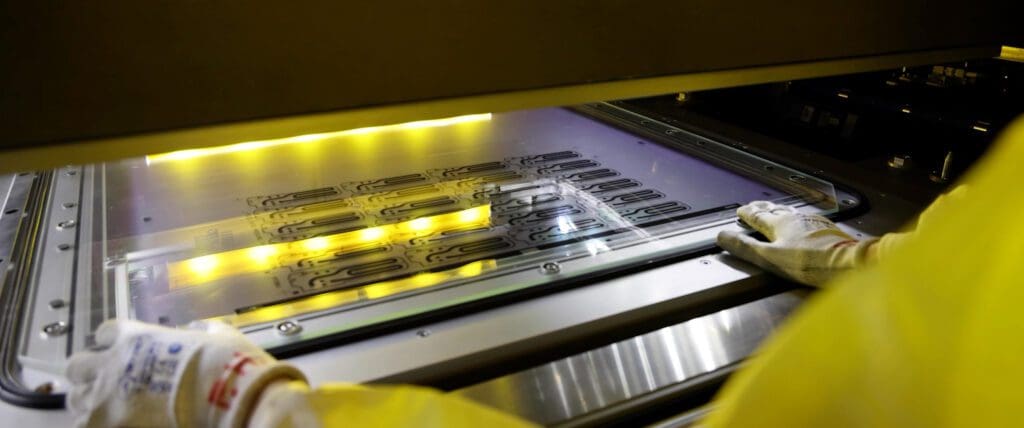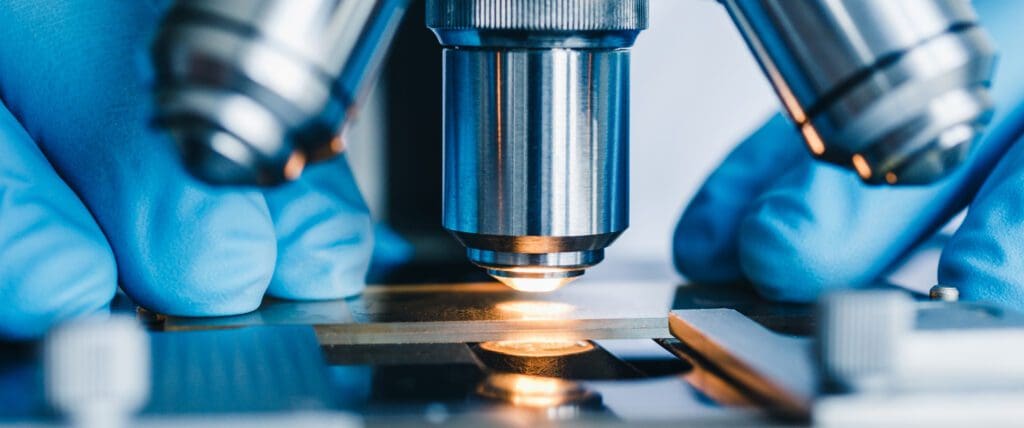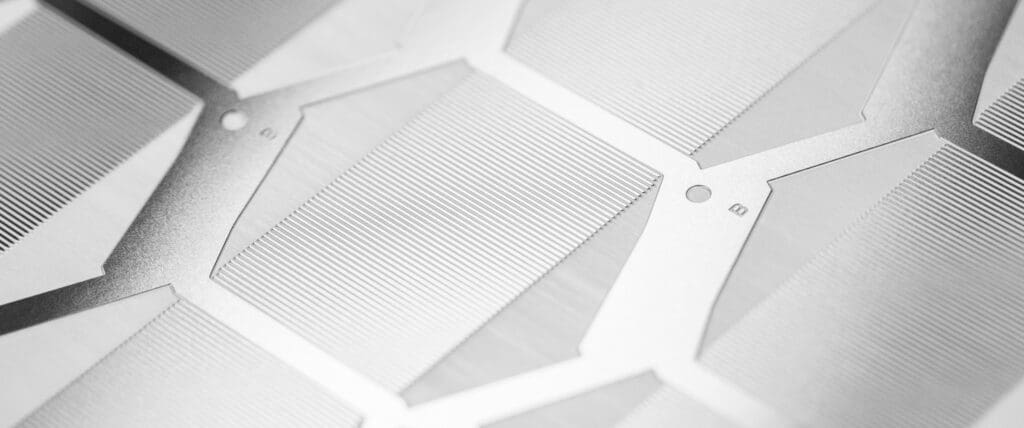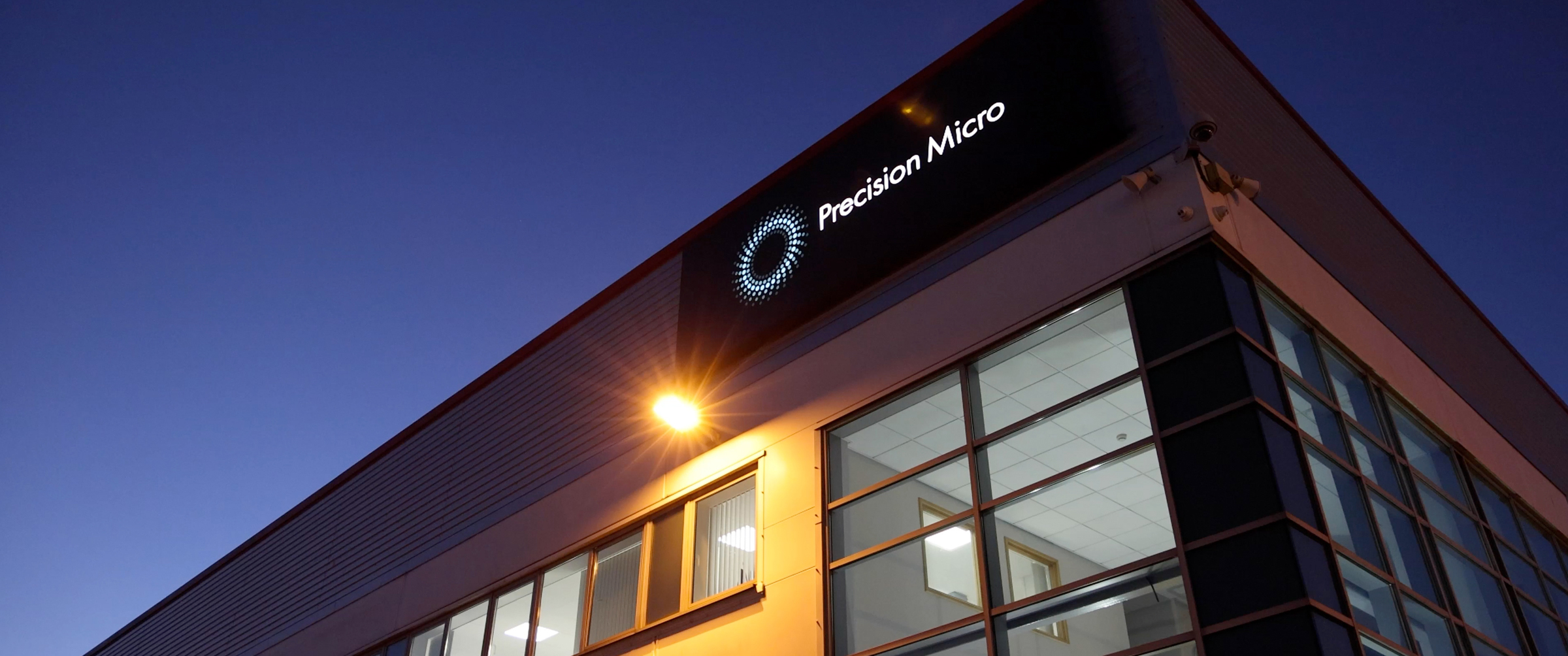Aluminium etching: Sheet aluminium machining made simple!
Where precision applications require strong but lightweight materials, aluminium and its alloys are often the metals of choice.
Not only does aluminium exhibit excellent strength-to-weight ratios it is also naturally corrosion-resistant, making it a perfect fit for use in extreme environments.
Other attractive characteristics of aluminium — including the fact that it is both malleable and ductile and exhibits high conductivity — are also its Achilles heel when it comes to manufacturing.
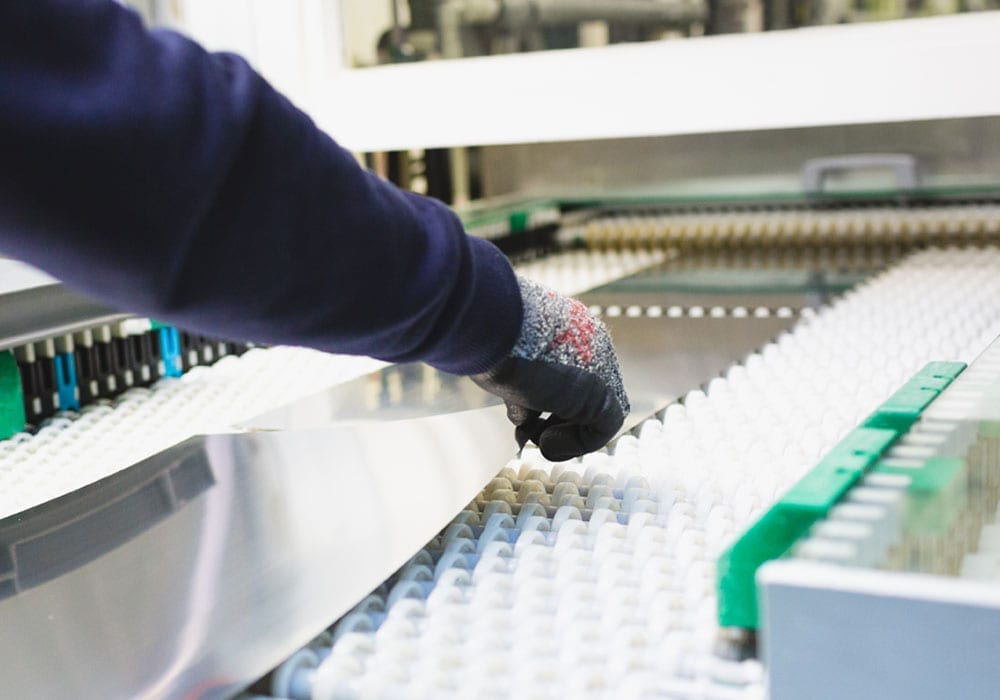
Aluminium’s ductility causes galling and pick-up when machined, and it work hardens when punched. Its heat reflectivity makes it challenging to laser cut, and as aluminium releases heat energy when photo-etched, it can lead to a rough granular edge.
Precision Micro, Europe’s market-leading photochemical etching company, has become synonymous with innovative approaches to metals and etchant chemistry. For a number of years the company has provided aluminium etching with component characteristics comparable to those etched in stainless steel — and with accuracy better than the industry standard for aluminium etching.
What is Aluminium Etching and how does it work?
Aluminium etching is the process of using chemical etchants to selectively and accurately dissolve away metal to create the desired component. The process is characterised by retention of material properties, burr-free and stress-free parts and clean profiles with no heat-affected zones.
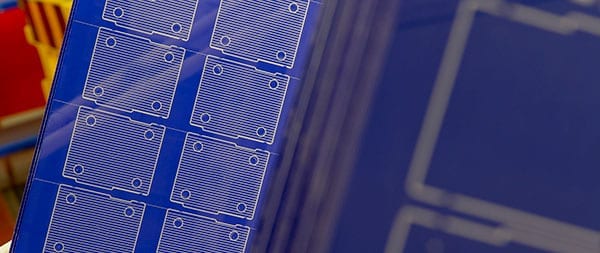
Coupled with the fact that chemical etching uses easily re-iterated and low-cost digital tooling, it provides a cost-effective, highly accurate and speedy manufacturing alternative to traditional sheet metalworking technologies including stamping, laser and water-jet cutting.
Chemical etching is ideally suited to extreme environment applications, notably those used in aerospace, which benefits from the material properties aluminium offers
The key to successful chemical etching is strict process controls. Precision Micro’s success in etching aluminium comes from a focus on the etchant chemistry itself, temperature control and the cleaning and preparation of the metal.
All these factors are inter-related, and one can have a negative impact upon the other, so success is based on considerable expertise honed over many years and over numerous projects.
Aluminium releases heat energy (becomes exothermic) when it comes into contact with chemical etchants, meaning conventional etching will partially destroy the photoresist that protects areas of the metal from being machined. This compromises the etch and produces sub-optimal products. Couple this with the fact that aluminium is famously non-corrosive (and etching is a corrosive process) and the issues are obvious.
Aluminium etching case studies
Precision Micro has been involved in numerous successful projects involving the chemical etching of aluminium.
An AS 9100 and IATF 16949-accredited chemical etching supplier, the company specialises in etching aluminium components for the automotive and aerospace sectors which use the material as its lightweight means greater fuel efficiencies and lower carbon emissions.
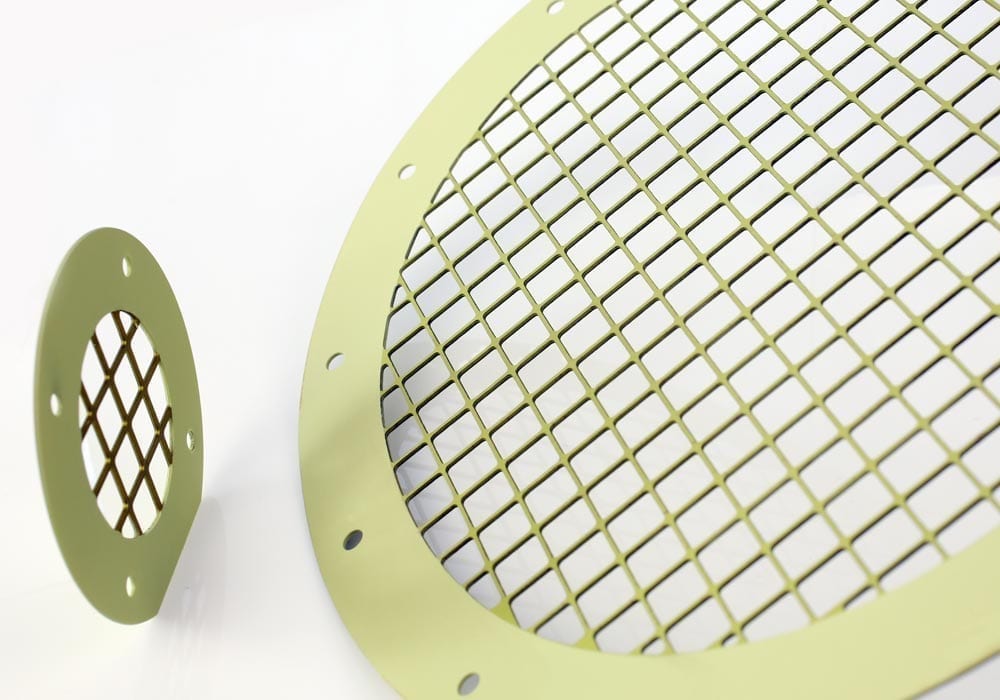
A market-leading helicopter manufacturer has been in partnership with Precision Micro for more than 20 years for the supply of its aluminium air intake grilles.
Chemical etching was selected as traditional metalworking introduced stress into the grille, etching retaining material characteristics during manufacture.
Chemical etching is also benefitting a leading aerospace OEM producing commercial aircraft in-cabin dehumidifiers.
The heater plates used in the assembly require subsequent stacking of multiple, complex designs which can be set up cost-effectively with etching. The process was preferred to stamping, which would have required numerous costly steel tools, as well as being unable to achieve the necessary cross-section of the profiles essential to thermal characteristics.
Numerous automotive OEMs have turned to chemical etching for the machining of aluminium car interior components such as dials, dashboard fascias and instrument covers, all of which can be machined with high-definition logos, surface textures and profiles.
Summary
The huge demand for aluminium across a range of pan-industrial applications is the spur for Precision Micro to constantly innovate and refine its etching expertise in order to exceed customer expectations and constantly manufacture innovative high-quality products.
Through a mixture of over 50 years of experience, capital investment and research and development to optimise chemistry and process control, Precision Micro is able to provide consistent, accurate and repeatable manufacture of aluminium parts using chemical etching.
Chemical Etching Whitepaper
Learn how chemical etching can overcome the limitations of traditional sheet metal machining technologies.
Download